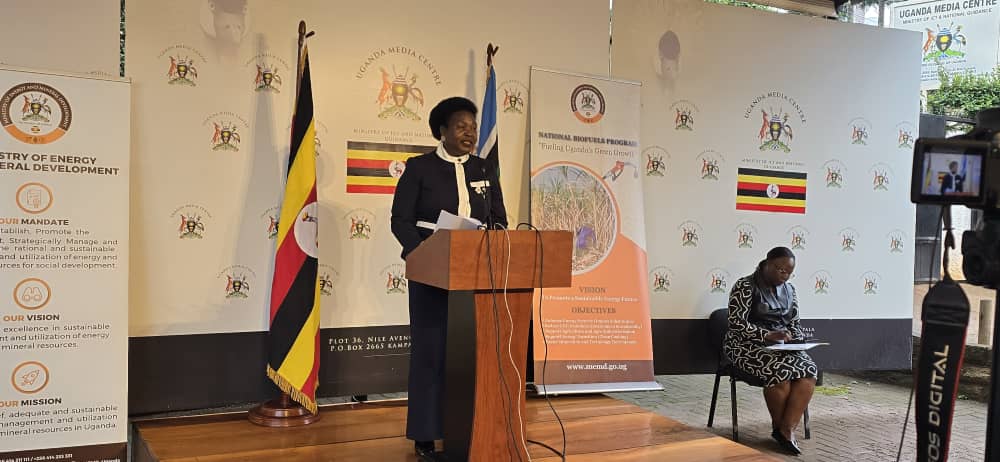The Ugandan government is set to launch its much-anticipated bio-fuel blending program this August, beginning with the introduction of E5—petroleum motor spirit blended with 5% locally produced ethanol.
The initiative is a key part of the country’s broader energy transition strategy aimed at promoting clean energy, reducing fuel import dependency, and empowering local farmers.
Speaking at a press briefing in Kampala, the Minister of Energy and Mineral Development, Hon. Ruth Nankabirwa, revealed that the program is aligned with Uganda’s Vision 2040 and the Bio-Fuels Act of 2020.
It seeks to enhance energy security, environmental sustainability, and economic empowerment through domestic value chains.
“This program will not only promote cleaner energy but will also stabilize markets for our farmers and support value addition to crops such as maize, cassava, and sugarcane,” Nankabirwa said. “It will create jobs throughout the entire value chain from farming and processing to logistics and blending.”
Local Ethanol Production to Drive Growth
Ethanol for the blending program will be sourced locally in line with the Buy Uganda Build Uganda (BUBU) policy.
The government has already licensed key ethanol producers, including Kakira Sugar, Hoima Sugar, and Bukona Agro, with a combined annual production capacity of 78.5 million litres.
To facilitate blending operations, four strategic blending centres will be established in Busia, Malaba, Mutukula, and Entebbe. These hubs are expected to handle over 110 million litres of Premium Motor Spirit (PMS) annually, making them critical nodes in the rollout of the bio-fuel initiative.
Affordability, Clean Cooking, and Quality Standards
Minister Nankabirwa reassured the public that the cost of blended fuel will remain affordable due to targeted tax exceptions. She also highlighted the wider use of fuel-grade ethanol beyond transport, noting its promotion as a clean cooking fuel, especially for rural households.
To safeguard fuel quality and protect consumers from adulteration, the Ministry of Energy, in partnership with the Uganda National Bureau of Standards (UNBS), has developed comprehensive national standards for both ethanol and blended fuels.
Oil Marketing Companies Urged to Prepare
The Minister called on Oil Marketing Companies (OMCs) across the country to expedite their preparations and support the nationwide rollout of the program.
She emphasized that the incubation phase will run until December 2025, allowing all stakeholders to fully operationalize the blending systems and address any logistical or technical challenges.
Nankabirwa concluded by emphasizing the program’s environmental and economic benefits, including reduced greenhouse gas emissions, improved engine efficiency, and direct support for Uganda’s climate action commitments.
By Alex Magala
1st July 2025
End

